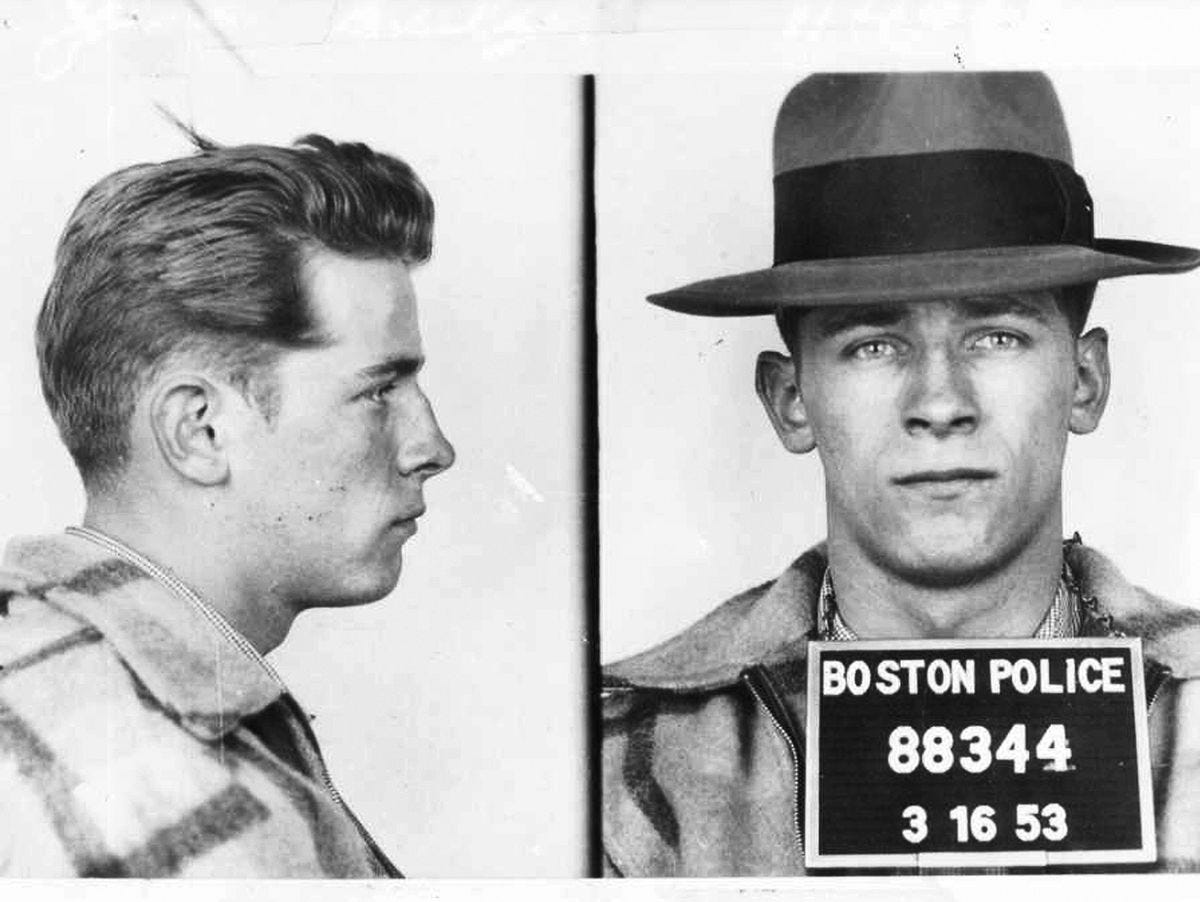VI The Lost Innocence
Yet, for all his transgressions, Ross William Ulbricht differs from the sinister characters populating the deep web. Not only does he pay homage to a relatively frugal lifestyle, but the agenda he's set on his LinkedIn profile has a serious political side. One of the strangest documents on file is a long conversation Dread Pirate Roberts had with his mentor, Variety Jones – in which they discuss world hunger, which isn't alleviated by the genetically modified, sterilized seeds of companies like Monsanto. Instead, it's being further exploited.
(2012-05-16 14:54) myself: we could be the real foreign aid
(2012-05-16 14:54) vj: Here’s the good part – stop a ship with 120 thousand metric tons of wheat on it, ain’t illegal anywhere;
(2012-05-16 14:54) myself: that gives the common man the means they need to throw off their oppressors
(2012-05-16 14:54) vj: We need to buy a ship
(1012-05-16 14:55) vj - Nobody will see us coming
(2012-05-16 14:55) myself: nope
(2012-05-16 14:55) myself: fuck im excited
(2012-05-16 14:55) vj: See, this here – this is change
In this chat, which goes on for a good hour, a grandiose fantasy of world redemption is ignited, which ends with the plan to campaign for a charitable platform such as Kiva.org. In this logic, globally operating companies such as Monsanto make better slave owners by relying on compliant governments and their corresponding banking systems, all adhering to increased profits – while on the other side, there's a counter-economy geared towards people and their social needs. In this narrative of political romanticism, the possibility of becoming part of a corrupt ruling elite isn't even envisaged. And Ulbricht isn’t alone in this attitude; his belief in the beneficial powers of technology echoes the motto of the Silicon Valley techno-evangelist giants like Google who preach, ›Don't be evil,‹ as they play on the salvation keyboard. However, comparing this vision to the interview given by Dread Pirate Roberts a year later to Forbes, it's as if the man in question has suffered a climatic psychological shock bordering on a kind of brainwashing. This may have to do with the interview’s actual purpose of covering all bourgeois traces pointing to the individual Ross Ulbricht. The new impersonation of Dread Pirate Roberts tells the interviewer that he hadn’t founded the site but merely took over it, just as he had assumed the identity of Dread Pirate Roberts. This is how the new impersonation of Dread Pirate Roberts makes it clear to the interviewer that he hadn’t created the site but only took it over, just as he assumed the identity of Dread Pirate Roberts. Now, you could say the voice of that idealistic Eagle Scout has since long been silenced; now it’s the manager speaking, referring to his technical expertise and justifying his prominent position by saying he has identified and eliminated a security loophole in the payment system. This new-found, even almost megalomaniacal coolness is also reflected in the assessment that Silk Road hasn't just become a company worth billions and is changing the state's balance of power.
»It already is transforming society. We've won the State's War on Drugs because of Bitcoin, and this is just the beginning. It's really part of a larger transformation, driven by peer-to-peer technology and the internet as a whole. The people now can control the flow and distribution on information, and the flow of money. Sector by sector the state is being cut out of the equation and power is being returned to the individual. I don't think anyone can comprehend the magnitude of the revolution we are in. I think it will be looked back on as an epoch in the evolution of mankind.«
While Ulbricht may present himself to the outside world as a new type of entrepreneur, even as a social revolutionary, inside things look very different. He’s been living in San Francisco since September 2012, first with his high school friend René Pinnell, then in various shared flats on Craigslist. While introducing himself as Ross Ulbricht to his first flatmate, he’s thinking about escape plans at the end of May 2013, noting in his diary on May 30: »spoke to nob about getting a cutout in Dominican Republic. said he knew a general that could help...« And he isn’t delusional in his intuition that authorities are hot on his heels, as in May, the New York task force identified his server’s IP address in Iceland and granted local administrative assistance. On June 5, a Silk Road trader is arrested, and on June 6, Icelandic authorities mirror the suspicious server with IP address 193.107.84.4. To Ulbricht's regret, the helpful Nob’s deal falls through: Although he makes a payment of $40,000, he also sends false photos – Nob claims he's spooked while his supplier felt betrayed and isn't communicating with him.
The only noticeable thing about this new flatmate is he pays the entire rent in cash and in advance, has no smartphone, and is busy with his computer almost all the time. On his portal, Dread Pirate Roberts, now using the pseudonym shefoundme, contacts a dealer who wants to send him a set of fake ID documents.
Unfortunately, on July 10, 2013, the package originated in Canada and got stuck in the hands of American customs authorities. Investigators have identified a café near the package’s address as where the ominous Dread Pirate Roberts used to log into the network, and he has become the focus of the investigation. As the attacks get closer, Ulbricht tries calming himself with yoga, his djembé drum, and occasional meetings with his new flatmates. On July 23, New York computer forensics investigators examined the mirror of the Silk Road server – three days later, Homeland Security officials visited Ross Ulbricht, confronting him with the forged driver's licenses intercepted by the customs authorities: all of them issued under different names whilebearing Ulbricht's photo. Ulbricht is surprised, pointing out he can get false documents or drugs from just about anyone on a website called Silk Road. On September 10, 2013, Gary Alford, the New York FBI official, undertakes the search that Variety Jones has long been anticipating, and suddenly, Ross Ulbricht's name comes up. After the investigation works through various suspects, ranging from a blameless student to the notorious Mark Karpeles, CEO of the Bitcoin exchange Mount Gox, only Ross Ulbricht remains.
Meanwhile, in a New York room dubbed the War Room, investigators busy themselves become familiar with the site they've duplicated from the mirrored server. Examining the retrieved Dread Pirate Robertschat logs and studying its code, they realize it’s the work of a self-taught hacker. And so the officers know who they’re dealing with long before they execute seizure at the San Francisco Public Library. It’s the kill orders communicated in such openness that shocks department head Chris Tarbell as he reads the Dread Pirate Roberts’ March 27, 2013 entry:
In my eyes, the FriendlyChemist is a liability and I wouldn't care if he was executed ... I have the following info Blake Krokoff Lives in an apartment near White Rock Beach Age: 34 Province: British Columbia Wife + 3 children
VII The guilty verdict
The wealth of incriminating written material is undoubtedly one of the greatest curiosities of the trial. It’s curious that, after Ulbricht is found guilty in February, Judge Katherine Forrest remarks how she’s puzzled he’d kept a diary while, on May 31st, 2015, she determines the appropriateness of two life sentences with no hope of early release. Of course, it’s clear that Machine logic is based on writing and logs – just as Ulbricht would want to document the what and how of his Silk Road journey this way.And it's not just the judge's questionable perplexity, but also many of the things relieved-out during the trial that clearly showed neither the Silk Road's internal logic nor the symbolic dimensions of the proceedings were considered.1 Instead, Ulbricht was held responsible for everything that happened on the digital platform and cast as Public Enemy Number One under the highly questionable legal doctrine of transferred intent, which holds that the service operator, if classified as a criminal, is liable for all criminal acts it is used for. And it’s this construction’s logic prosecutors used to call parents of drug victims who died from consuming Silk Road goods they’d ordered to the witness stand. If these dramatic appearances failed to affect the jury, Ulbricht was also held legally, in the sense of transferred intention (often paraphrased as ›the intention follows the bullet‹), directly responsible for the deaths of these people.2 In addition to these appearances, much of the prosecution's case consisted of nothing more than a public reading of selected log files. Again and again, a law enforcement official stepped forward to read aloud what Dread Pirate Roberts had said and what the log files had recorded. Combined with the awareness that people had died, the impression was so disastrous that the jury needed almost no deliberation time in finding Ulrich guilty on all charges of conspiracy to distribute illegal substances, operating a criminal organization, breaking into computer systems, selling fake IDs, and money laundering.
In contrast, the defense's strategy collapsed early on. While Ulbricht's lawyer, Joshua Dratel, conceded at the trial's start that Ulbricht had launched Silk Road, only to hand it over to a successor in mid-operation, the sheer mass of incriminating material virtually crushed this construction - because the decisive evidence had already been accessed on the computer, leaving no doubt. In contrast, the defense, backed into a corner, tried time and again to neutralize the overwhelming nature of incriminating material by claiming it wasn't at all certain Ulbricht was the author – that instead, he'd handed over the Dread Pirate Roberts identity to another person in 2012, and only re-assumed it shortly before his arrest. With this strategy of distancing and deflection, any chance of raising questions about those connections was lost - a query that should have put the strange, criminal behavior of DEA and Secret Service agents Force and Bridges on the docket.
Consequently, the particular logic that encrypted and anonymized communication entails has never become part of the procedure. If it's assumed that drunkenness or a state of agitation reduces an ordinary offender's culpability, it follows that rather than mitigating the punishment, the moral disengagement associated with telematic communication had the effect of aggravating it. That, as the judge herself noted, this sentence was intended to set a warning example, explains precisely how Ross Ulbricht received the same punishment as gang boss James ‘Whitey’ Bulger, a man who had been found guilty not only 11 counts of murder but also of involvement in 150 or more contract killings.
Accordingly, it wasn't the young man described by his friends, and even his cellmates, as a gentle, amiable young man who was convicted, but the image that emerged of an incendiary sociopath who single-handedly steered his ship into the shoals that would ultimately lead to the pseudo-cold-blooded execution of all those who stood in the way of Silk Road's business.
However, this focus on the young man's character traits obscures the specific nature of the case. Because if anyone was sentenced in the rooms of the Manhattan Southern Court, it certainly wasn't Ross Ulbricht, the young man playing the djembé and practicing yoga, but the figure of Dread Pirate Roberts,in whom a collective phantasm found expression. As the tangled plot lines show, Silk Road can’t be understood as an individual undertaking but only as the intersection of a collective desire, a desire that - in the internal logic of anonymized communication - unfolds a lawfulness whose seductive power, not even Law Enforcement wasn’t immune to. If you ask about the inspirations the Silk Road’s founders brought to life, the thinking of public enemy no. 1 is not an aberration. Rather, it expresses the prevailing neoliberal ideology: the idea of a free market that is finally freed from the State's shackles. If the term were not overloaded, we could speak of a political process. Why? Because the trial is taking place in a political vacuum created by the unleashing of money and communication since the 1970s - of which the accusers themselves provide the best examples: Chuck Schumer, the senator who championed the repeal of the Glass Steagall Act in 1996, and the judge he elevated to office, Katherine Forrest, a lawyer specializing in championing antitrust, contract and copyright issues in the interests of entertainment conglomerates like Time Warner, whose last official act before the Silk Road case was striking down an antitrust case against JPMorgan.3 If we take Carl Schmitt's dark remark The enemy is my own question in another form, it demonstrates the fatal nature of the proceedings: that Ross Ulbricht has become the scapegoat of the political vacuum that opened with the digital revolution.
If the Silk Road can be considered a lesson here, it clarifies two things. In its pure form, we encounter the phantasm that the digital revolution's protagonists paint on the wall here – a world in which the State as a national entity has lost its significance. This vacuum isn't just noticeable in the depths of the web—it is no less articulated in the anomie of those money flows migrating to where the lowest tax burden lies or where correspondingly low social standards promise the highest profits. When a traditional institution such as Deutsche Bank becomes embroiled in over a thousand legal disputes and is convicted of multiple legal violations, it's clear the logic of narco-dollars has long since infiltrated respectable-seeming institutions. If the traders who manipulated the Libor Inter-Bank interest rate behaved as guilelessly as the Dread Pirate Roberts, it can be assumed that they will adapt their spin-off techniques to the requirements of encrypted communication in the future. In other words, they will follow the path taken by the libertarian Ross William Ulbricht - towards the fully digital, history-free persona of Dread Pirate Roberts. Taking his story as a lesson, it teaches us that we can understand the Silk Road as thestate-of-the-art, as a state without a state that, along with the old shackles, has also shed its social binding force. And isn't this not the world we've been living in for a long time, a global order whose effects aren’t only beneficial but can also be sinister? As Joseph de Maistre once said? The road to hell is paved with good intentions.
Translation – Hopkins Stanley and Martin Burckhardt
What’s so questionable here is how Judge Forrest appears to use the mutability of the transferred intent doctrine to hold Ross Ulbricht accountable for the investigating Law Enforcement officials criminal RICO activity, including their development of Silk Road for personal profit and pseudo-murder schemes of entrapment; and she does this by declaring any evidence of this criminal activity as inadmissible to the trial. It almost seems that, in a move of desperation, she decided to make Ross the scapegoat for how the American dream of Libertarianism has come to fruition in the anonymization and encryption inherent in our Age’s Digital Social Drive; something she clearly neither understood nor knew how to contain as is further demonstrated by the assignation of ambiguous legal responsibility in footnote two below.
According to this logic, the US Postal Service, as well as FedEx or DHL, could have been held responsible for drug trafficking - after all, the logistics of drug shipments were handled exclusively through these channels.










